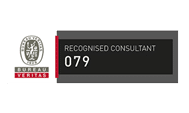The Pitfalls of Soft Auditing in ISO Management Systems

When seeking ISO certification, many organisations rely on ISO consultants to guide them through the process. However, one risk that businesses often overlook is the concept of “soft auditing.” While it might seem like a less invasive or more approachable method of assessing compliance, soft auditing can create significant problems—especially when working with ISO management systems such as ISO 9001 Quality, ISO 14001 Environmental, and ISO 45001 Health & Safety.
Let’s explore why soft audits might give you a false sense of security and how the expertise of ISO consultants can protect you.
What Is Soft Auditing?
Soft auditing is an approach where an external auditor takes a gentler, less formal stance during the audit process. Rather than highlighting hard non-compliances or identifying serious risks, soft auditors may focus on giving suggestions for improvements without delving deeply into the actual weaknesses of a company’s ISO management systems.
You might find yourself thinking everything is running smoothly, but this style of auditing could be masking underlying issues that, if left unaddressed, could pose major risks down the road.
The Risk of Soft Auditing
It’s important to recognise that soft auditing exists—and you might be unknowingly receiving this type of audit. An external auditor, who may be more focused on keeping the process comfortable and “low-stress,” could leave issues unaddressed, assuming they aren’t critical to your ISO management systems. As an organisation, this may give you a false sense of confidence in your processes, assuming that all is well with your ISO 9001, ISO 14001 or ISO 45001 certification.
But here’s the catch: external auditors can change. When this happens, you could suddenly be faced with a much more stringent, “hard” auditor—someone who will not take the same lenient approach and will push for full compliance. This shift in auditing style can be a real problem. Non-compliance issues that were previously overlooked could suddenly be flagged as critical, leading to costly corrective actions, or even the loss of your ISO certification.
The Transition to a Hard Auditor: The Impact on Your Business
When your external auditor changes and you are faced with a hard auditor, the shift in approach can lead to internal conflict within your team. After years of “soft” audits, the sudden revelation of compliance gaps can cause frustration and confusion. Employees who believed the organisation was compliant may now be tasked with scrambling to resolve issues they didn’t realise existed.
This is where the role of ISO consultants becomes crucial. A skilled ISO 9001 consultant, ISO 14001 consultant or ISO 45001 consultant brings a more pragmatic and balanced approach to auditing. Rather than simply going through the motions of a soft audit, a consultant will help you identify and address key areas for improvement while maintaining a focus on compliance.
The Role of the ISO Consultant: Practical Protection Against Hard Auditors
The value of working with the right ISO consultant is that they can help you navigate the risks associated with soft auditing. Rather than relying on external auditors to provide “soft” audits that leave gaps in your processes, an experienced ISO consultant offers practical, real-world solutions to strengthen your management systems. This proactive approach ensures that your systems are not only compliant but also efficient and sustainable, regardless of how your external auditor may change in the future.
ISO consultants aren’t about being “hard” or “soft”—they are focused on providing practical, actionable advice to help you maintain compliance while strengthening your ISO management systems. They help identify gaps early, ensuring that your systems are built to last, even when faced with the scrutiny of a more stringent auditor.
The Bottom Line: Avoiding the Risk of Soft Auditing
While soft auditing may seem like an easy route, it often creates a false sense of security that can leave organisations vulnerable to the impact of a “hard” auditor. The goal should be to work with experienced ISO consultants who offer a balanced, pragmatic approach that helps you build a robust, compliant system, ready for any audit that may come your way.
By engaging with an ISO 9001 consultant, an ISO 14001 consultant, or an ISO 45001 consultant, you are ensuring that your business is prepared for both internal audits and the transition to potentially more rigorous external certification audits. With the right guidance, your organisation can avoid the pitfalls of soft auditing and stay on track to meet the highest ISO management system standards.
Like most things in life, not all ISO consultants are built the same. If you would like to be protected in the easiest, most practical way, talk to us, as The ISO Simplification Experts, we guarantee no easier route to the gaining and maintaining of UKAS-certified ISO management systems. Click here to get in touch, and here to confirm our claims on our TrustPilot page.











